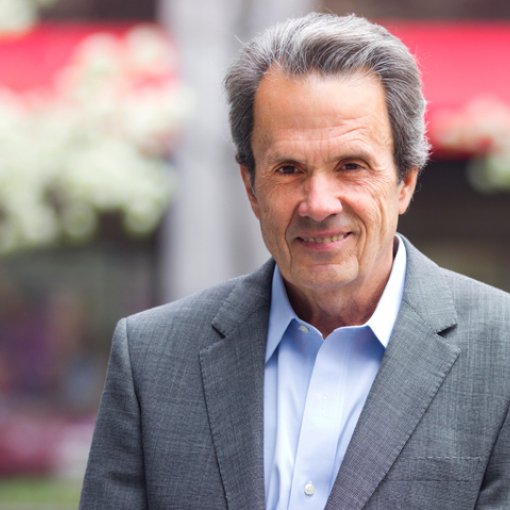
As the PR profession is becoming more complex, more demanding and more strategic, we must act boldly, think more creatively and compete more aggressively. If we step up to the plate, we will play an increasingly important role within our organizations. If we don’t change as fast or faster than everything around us, we will no longer be relevant.
On December 1st, I gathered a group of public relations visionaries for a panel discussion here at Wallis Annenberg Hall about the single greatest threat facing our profession: irrelevance. The basis for the discussion was our newly released Relevance Report, a compilation of ideas about what will be relevant to communicators in 2017. Curated by CPR, this unique collection includes essays from communication leaders and academic experts on the issues, ideas and innovations that will shape the communications industry in 2017. It represents the best thinking from agency, corporate and academic leaders, all of whom are associated with the Annenberg School. In total, there are about 30 brief articles about interesting topics ranging from Silent Movies to Virtual Reality and China to Cuba.
Many of the pieces were authored by members of the advisory board of the USC Center for Public Relations, which includes leaders for companies like Starbucks, United Airlines, AECOM, eBay and Chevron. We also have contributions from agency leaders at Weber Shandwick, Shift, Ketchum and Golin. There are also a series of articles from members of the Annenberg faculty, including Dr. Stacy Smith, Burghardt Tenderich, Robert Kozinets and Dean Ernest J. Wilson III, as well as a couple of students in our graduate PR program. We think the information in the Report will be very valuable for anyone studying or working in public relations.
The Report clearly demonstrates we are part of a very dynamic global profession that is constantly changing due to new technology, new media and new demographics. Based on our contributors, Virtual Reality seems to be the hot new communications technology. They explain several new VR applications that have the potential to revolutionize how we tell stories and sell products, especially to younger audiences. Nearly 80% of Gen Z report they are looking forward to using VR technology.
Content is also center stage in most companies, who are not only sharing existing content but creating relevant new content that engages their customers and builds their brand. Starbucks’ Upstanders program is a powerful example.
Social media continues to increase in power at the expense of traditional media especially with younger audiences who are increasingly cutting the cord and changing the rules. 40% of people now get their news from Facebook. And streaming video is the dominant medium. In the last 60 days, more video content was uploaded to YouTube than all three major networks generated in the last 60 years. We all need to stay on top of these changes to be effective in our jobs and relevant in our careers.
The Report also underscores the critical role that communications plays in our society. The recent election was a graphic example of the political and cultural divisions we are facing in the U.S. and abroad. As communications experts, we have the ability and the responsibility to help bridge some of these dangerous divides. This should be the purpose of our profession.
The PR Industry has reached an important inflection point. Several of the pieces discuss how the role of the PR professional is changing from gatekeeper to facilitator. Some talk about the new skills we all will need to be successful in the future and the importance of lifetime learning. Others talk about the new technologies we will need to understand as machines begin to play a greater role in writing press releases and driving cars.
The bottom line is we all have the opportunity to play an increasingly critical role within our organizations and within our society. The job we do today is much more sophisticated and much more important. Plus the scope of what we do for our companies and our clients has grown exponentially. The Relevance Report reinforces the strategic nature of our work and rapid pace of change in our industry. It’s a great time to be in PR.
 Fred Cook is the Director of the USC Center for Public Relations (CPR) and a Professor of Professional Practice at USC Annenberg. As the director of CPR, he connects businesses, agencies, academics and students to advance the study and practice of public relations through research, education and innovation. He also is the CEO of Golin, one of the world’s largest public relations firms, with 50 offices around the globe. Follow him on Twitter @fredcook
Fred Cook is the Director of the USC Center for Public Relations (CPR) and a Professor of Professional Practice at USC Annenberg. As the director of CPR, he connects businesses, agencies, academics and students to advance the study and practice of public relations through research, education and innovation. He also is the CEO of Golin, one of the world’s largest public relations firms, with 50 offices around the globe. Follow him on Twitter @fredcook



